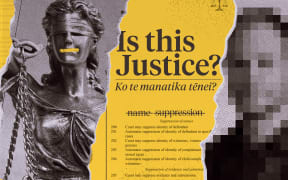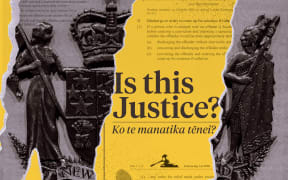The appointment of judges to the High Court is opaque, outdated and needs to change, lawyers and academics have told RNZ.

Photo: RNZ/Vinay Ranchhod
Judges are recruited for their prestigious jobs based on the recommendations of senior members of the legal community, and can be appointed without even having to attend an interview.
While there is a detailed and formalised application process for potential District Court judges, including an interview, there is no such requirement for those being appointed to higher courts.
Read more from Is This Justice?
- Pākehā granted name suppression three times as often as Māori
- Revealed: Who is being discharged without conviction
- 90 percent of High Court, Court of Appeal judges Pākehā
About once every three years, lawyers with more than seven years experience who want to be a High Court judge can fill out an expression of interest form to be considered.
Other lawyers are nominated or shoulder tapped and invited to express their interest.
The Attorney-General then asks around about all the potential judges' reputations - consulting the Chief Justice, Solicitor-General, other judges and senior members of the legal community - and advises the Governor-General, who makes the appointments.
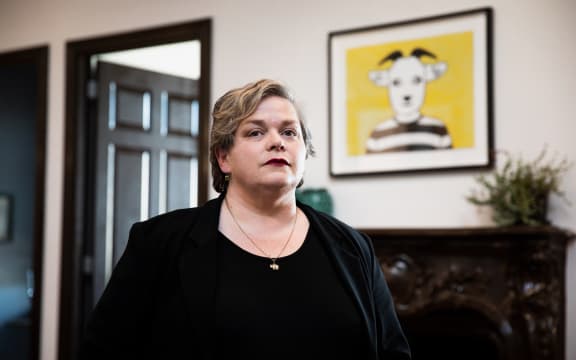
Elizabeth Hall. Photo: RNZ / Samuel Rillstone
Defence Lawyers Association co-founder and barrister Elizabeth Hall said the process was "outdated".
"In the District Court there's an application process that ostensibly is followed with a panel and an interview, and some limited, it would seem, reference checking. The High Court seems to be more of a tap on the shoulders of the person they want."
RNZ revealed yesterday that 91 percent of High Court judges are Pākehā, and 59 percent are men.
Across the senior courts, more than 70 percent of judges were working in just a few areas of law - corporate, civil or for the Crown - immediately prior to their appointment.
One of the key principles in the guidelines for appointing High Court judges is "a commitment to actively promoting diversity in the judiciary".
Former District Court Judge Rosemary Riddell said the fact the vast majority of High Court judges were Pākehā was proof that appointing judges largely based on recommendations was not an effective way to make the judiciary more diverse.
"It's not good enough because there might be someone practising law somewhere around the country who hasn't come to the attention of the chief judge [of the bench], but does a really good job, has a good mind, intellectual ability, and might do very well on the High Court."
Auckland University Research Fellow Litia Tuiburelevu, who studied Pasifika peoples in the justice system, said asking individuals to nominate themselves went against Māori and Pasifika culture.
"Culturally, it's a little bit whakama (embarrassing) to just kind of be like, 'Oh, I want to become a judge.' It's a kind of cultural humility that you are not going to be the first one to put your hand up, even though there's definitely individuals I can think of who would be perfect."
Indeed, data obtained by RNZ from the Attorney-General's Judicial Appointments Unit showed that as of April, 86 percent of people who had expressed interest in becoming a High Court judge were Pākehā. Only 6 percent were Māori and 7 percent were classed as 'other'. Overall, less than a third of applicants were women.
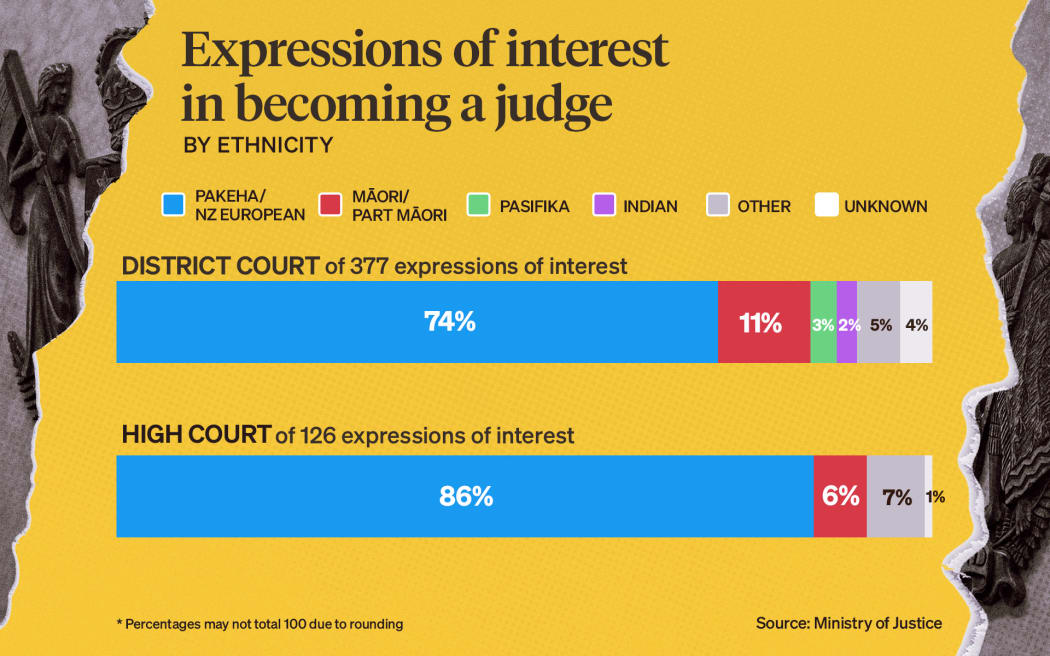
Photo: RNZ/Vinay Ranchhod
In the District Court, nearly three-quarters of lawyers who expressed interest in becoming a District Court Judge were Pākehā, 11 percent were Maori and 3 percent Pasifika. Just over half of applicants were men.
One lawyer, who RNZ agreed not to name, said the appointment process was concerning.
"High Court appointments aren't considered a transparent process at all... It's a tap on the shoulder and a coffee date to seal the appointment."
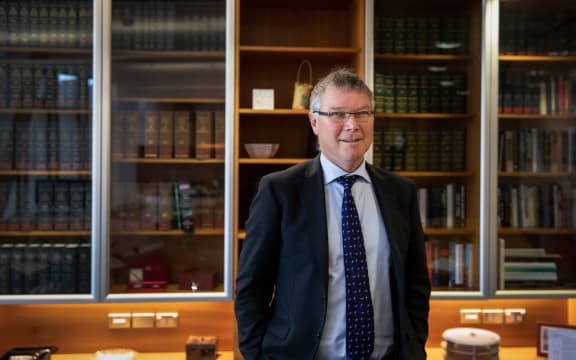
David Parker. Photo: RNZ / Samuel Rillstone
Attorney-General David Parker disputed that.
"That's not correct. I actually believe that the process for appointing judges in New Zealand is fantastic. The most important attribute of the judiciary is that they'd be competent and independent, and we've achieved that in New Zealand in a way that's probably amongst the best in the world."
The informal appointment process suited New Zealand because of its small legal community, he said.
"The people who work in the system, being the judges and the Solicitor General and her staff, and they are really well connected with all of these people."
That meant personal recommendations were appropriate and worked well, Parker said.
"I mean, I've done this with two Chief Justices, Dame Sian Elias, and now Helen Winkelmann, and they are very very wise people. You don't get to be the top in that job without both being clever and wise."
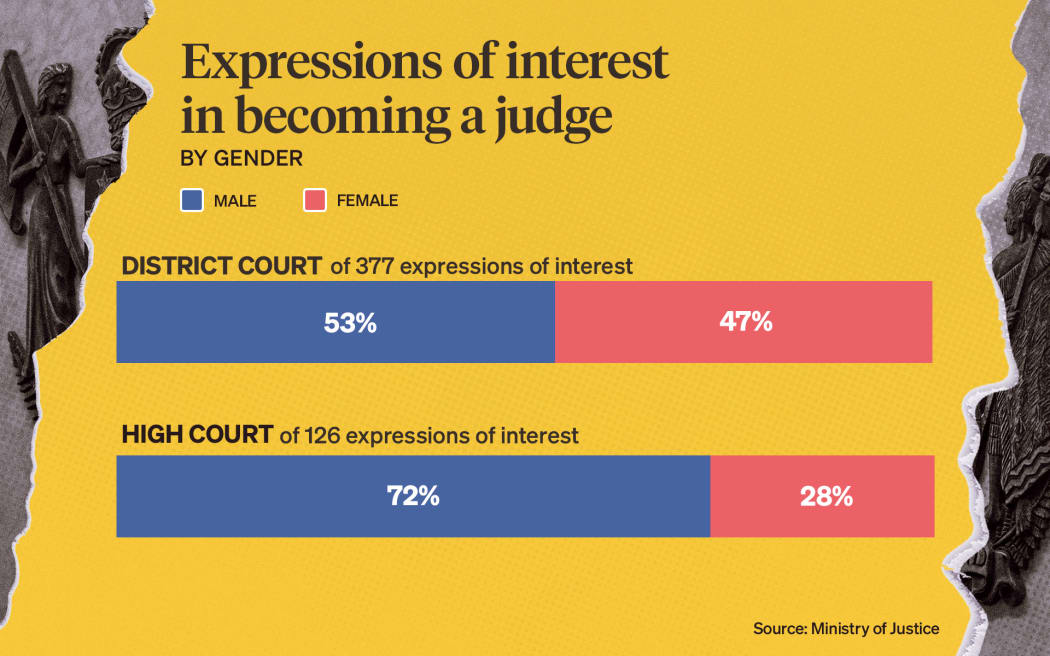
Photo: RNZ/Vinay Ranchhod
Chief Justice Helen Winkelmann also defended the current system, saying a more formalised approach would put people off applying.
"The senior courts tend to be populated by people who are high-performing, highly competitive, highly self-critical individuals. The experience in other jurisdictions has been that those kinds of processes can be a disincentive to that catchment applying in these roles," Winkelmann said.
"So they think 'Well I only want to do it if people want me'.
"Having said that, we do get to see a lot of these people. The law profession is not so large, if they're practising before the courts we have lots of - multiple - sources of information that we can call on to get a sense of them. And we follow their careers for 20 to 30 years."
The Solicitor-General approached a diverse range of professional networks for recommendations on who might make good judges, including the Asian Lawyers Network and the Māori and the Pacific Lawyers Associations, Justice Winkelmann said.
"We're looking for people who show intellect, who show empathy, who have who aren't too specialised. We try and encourage people from different backgrounds to express an interest."
Victoria University public law expert Dean Knight said the current appointment process for senior court judges appeared to be "centred around the establishment".
"The risk of the established process is that it keeps entrenching an almost conservative model of law," Knight said.
However, the current system reflected a desire not to see judicial appointments politicised, he said.
"So it's a question of how do you balance the needs of diversity, competence and ensuring the apolitical nature of the outcome."
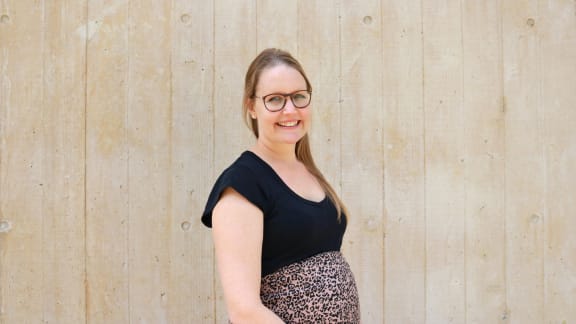
Jessica Kerr. Photo: Supplied
University of Western Australia PhD candidate Jessica Kerr - a New Zealander who had worked as a magistrate in the Seychelles and was now researching judicial issues - said the generally accepted 'gold standard' in the Commonwealth was to have an independent judicial appointments commission.
While New Zealand could be seen as ahead of parts of Australia, where there was still very little transparency in appointment processes, it was way behind Britain, which had an independent Judicial Appointments Commission since 2006, she said.
"There have been calls for a commission of that kind in New Zealand for decades… but it never really gained critical momentum."
That was because of concerns that judicial independence could be eroded if appointments were taken out of the control of the judiciary and Attorney-General, Kerr said.
"One of the ultimate reasons why judicial appointments are so opaque, so shrouded in mystery, is that there is this concern about political capture, that if politicians or interest groups managed to somehow get a foothold into the appointments process, it will result in judges being appointed because of how they're going to rule rather than because of their competence, their independence, their integrity."
The fear of political interference was sometimes exaggerated, she said.
Kerr, however, was not convinced an independent appointments commission was necessarily the answer for New Zealand, even if there was still work to do in terms of its lack of transparency.
"I'm not sure it would achieve what its proponents think it would, either in terms of increased transparency or diversity or overall judicial excellence."
That was because the overall quality of New Zealand's judiciary was very high, she said.
"There's no question about that. It's consistently, high-ranked, very highly respected around the world. But is that because of our appointments process or despite it? I think that that's a fair question to ask."
Kerr believed more needed to be done to educate and train lawyers to work in the judiciary before they were actually appointed, and to make the process transparent to the public.
It would better prepare lawyers for the work, making it a career choice rather than a reward for being a good lawyer, and open up the pathway for lawyers who did not have a lot of courtroom experience while also instilling public confidence in the judiciary, she said.
Hall believed judicial appointments would become more transparent if the "veil of prestige around being a judge" was removed.
"We're very entrenched in this hierarchical structure. What if being a judge was just like any other job?"
- This article is part of the series Is This Justice?

